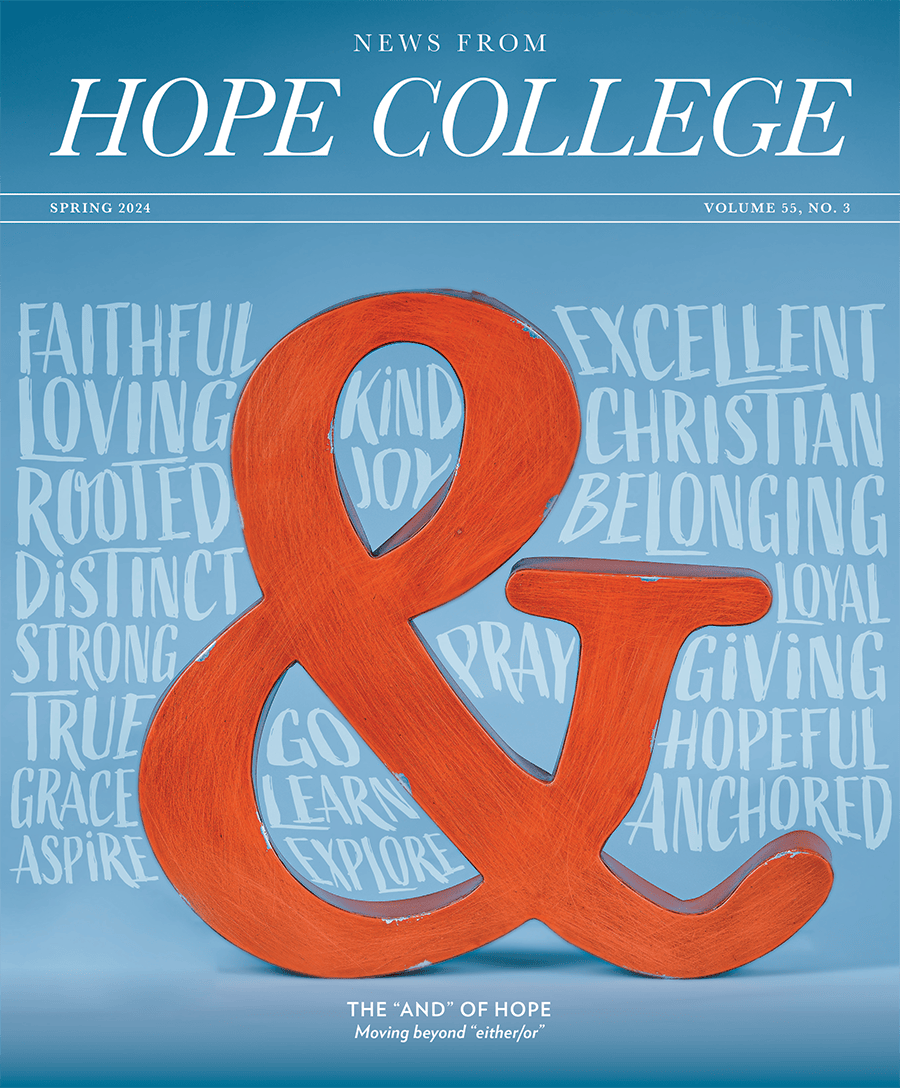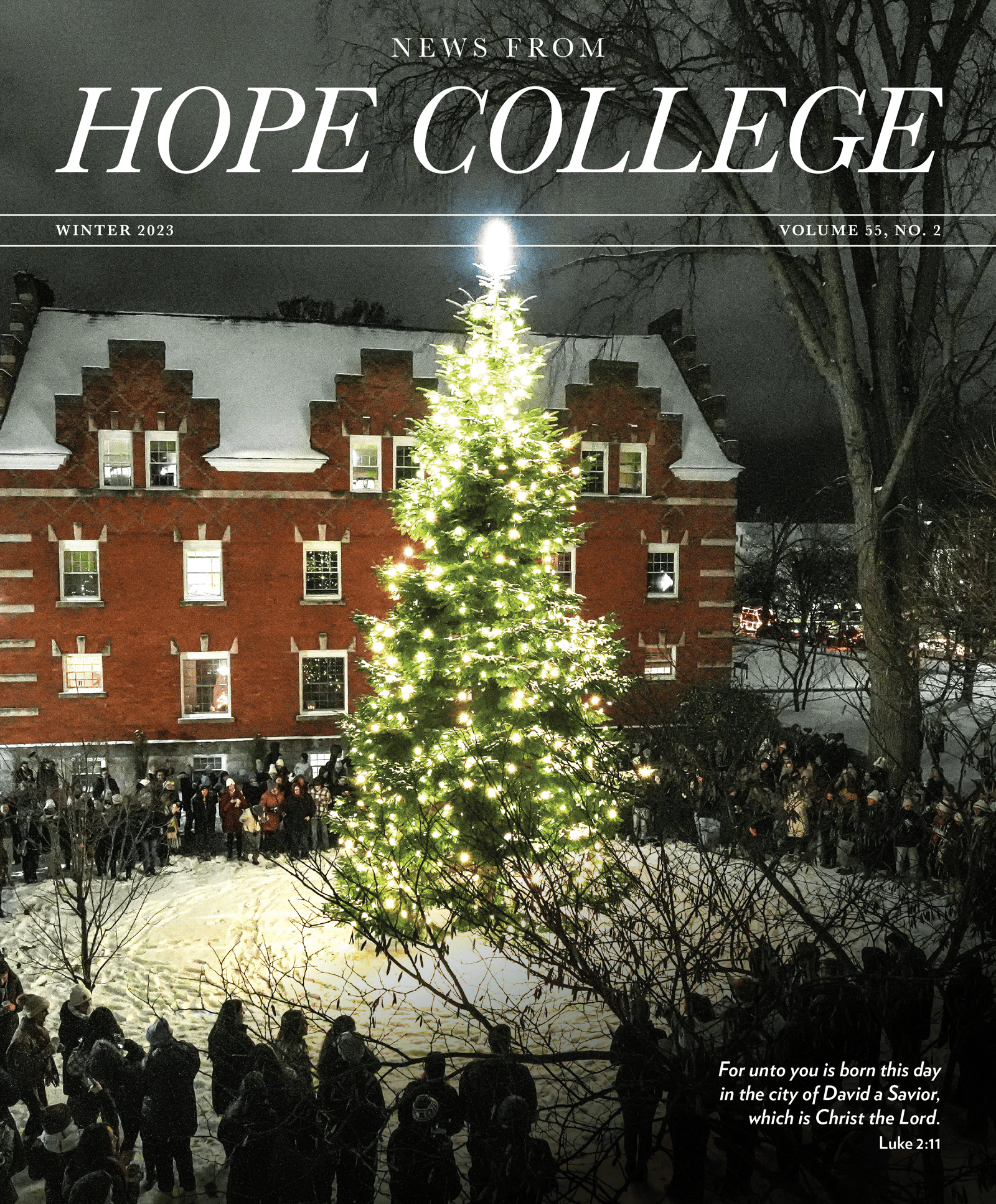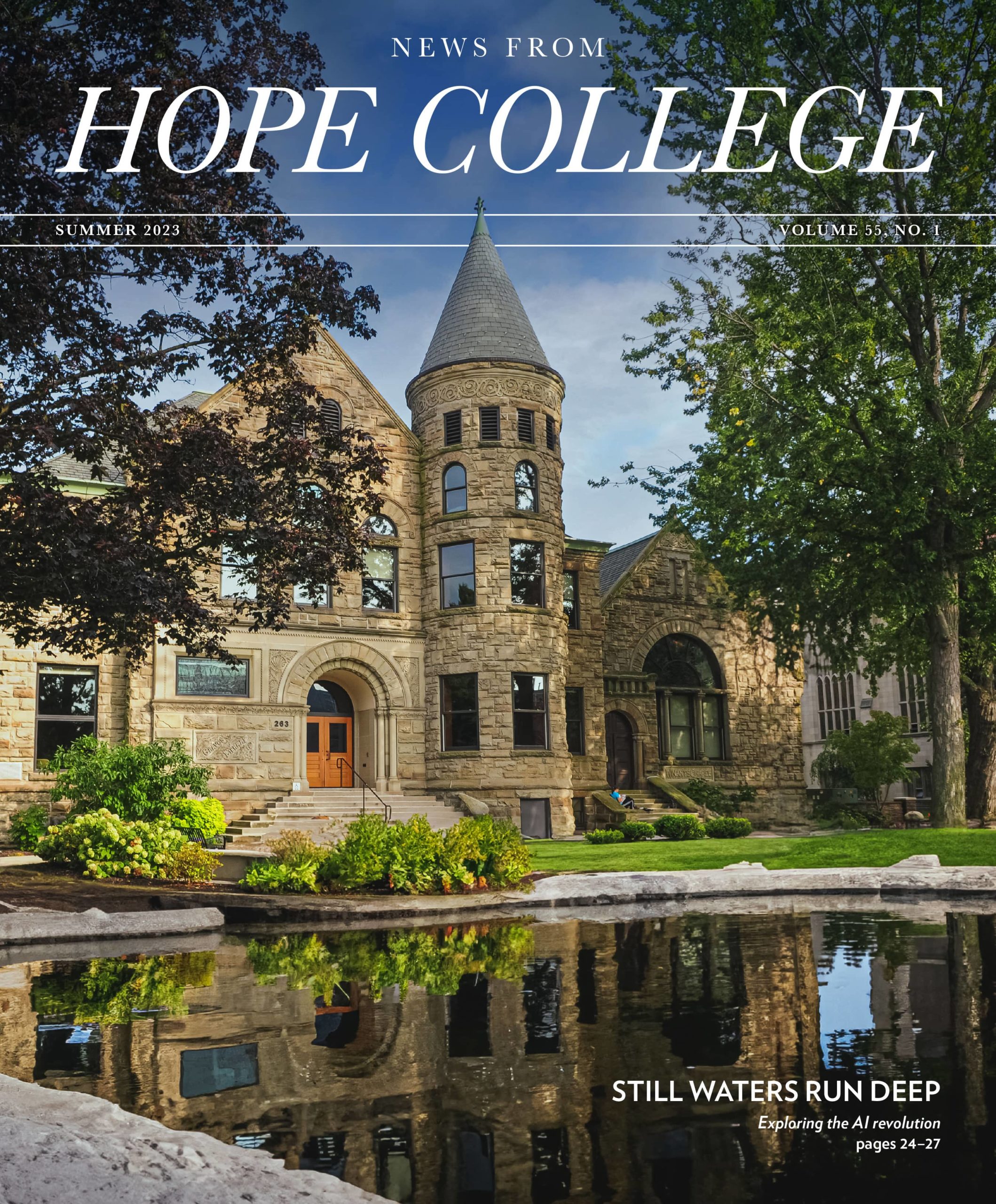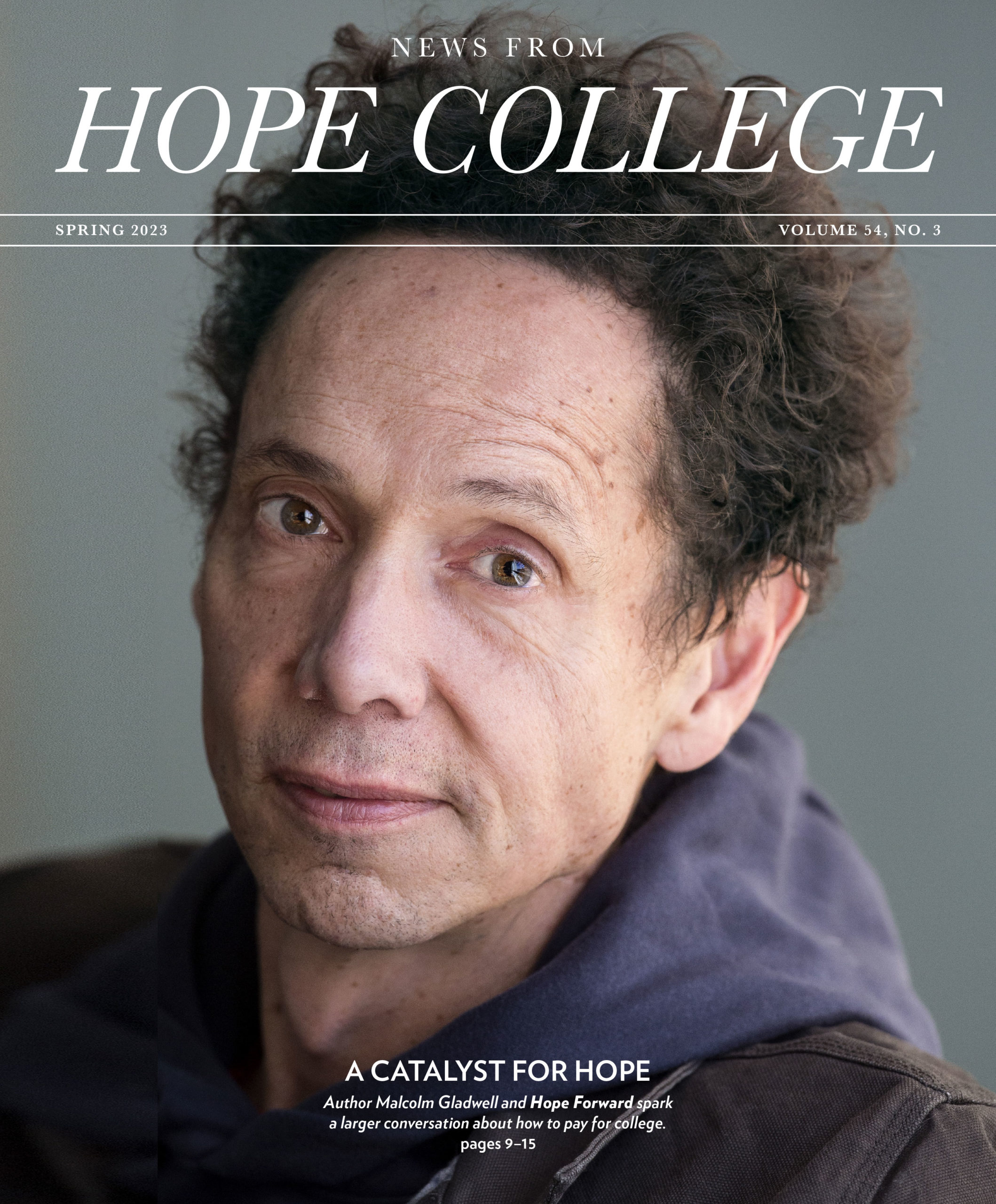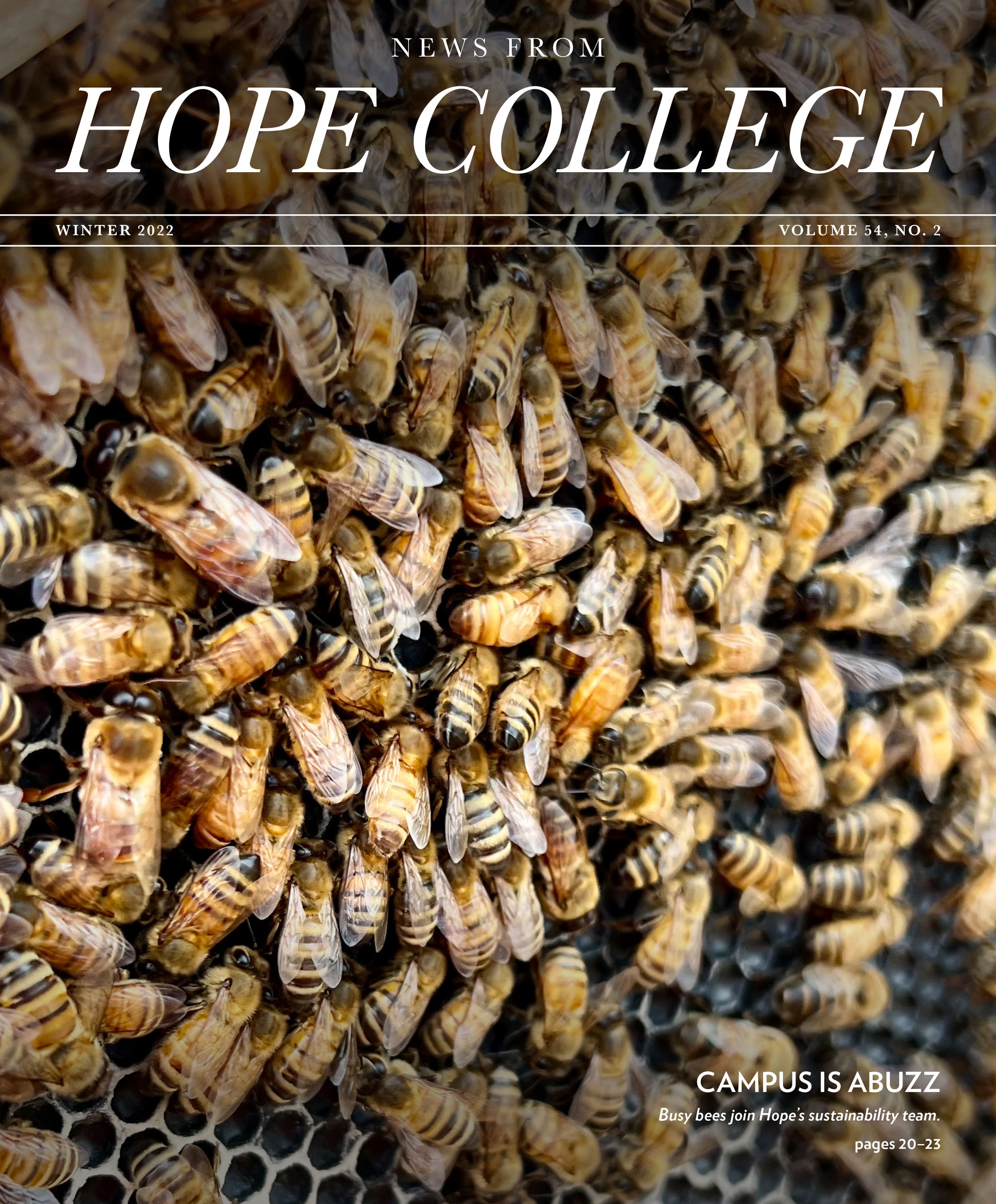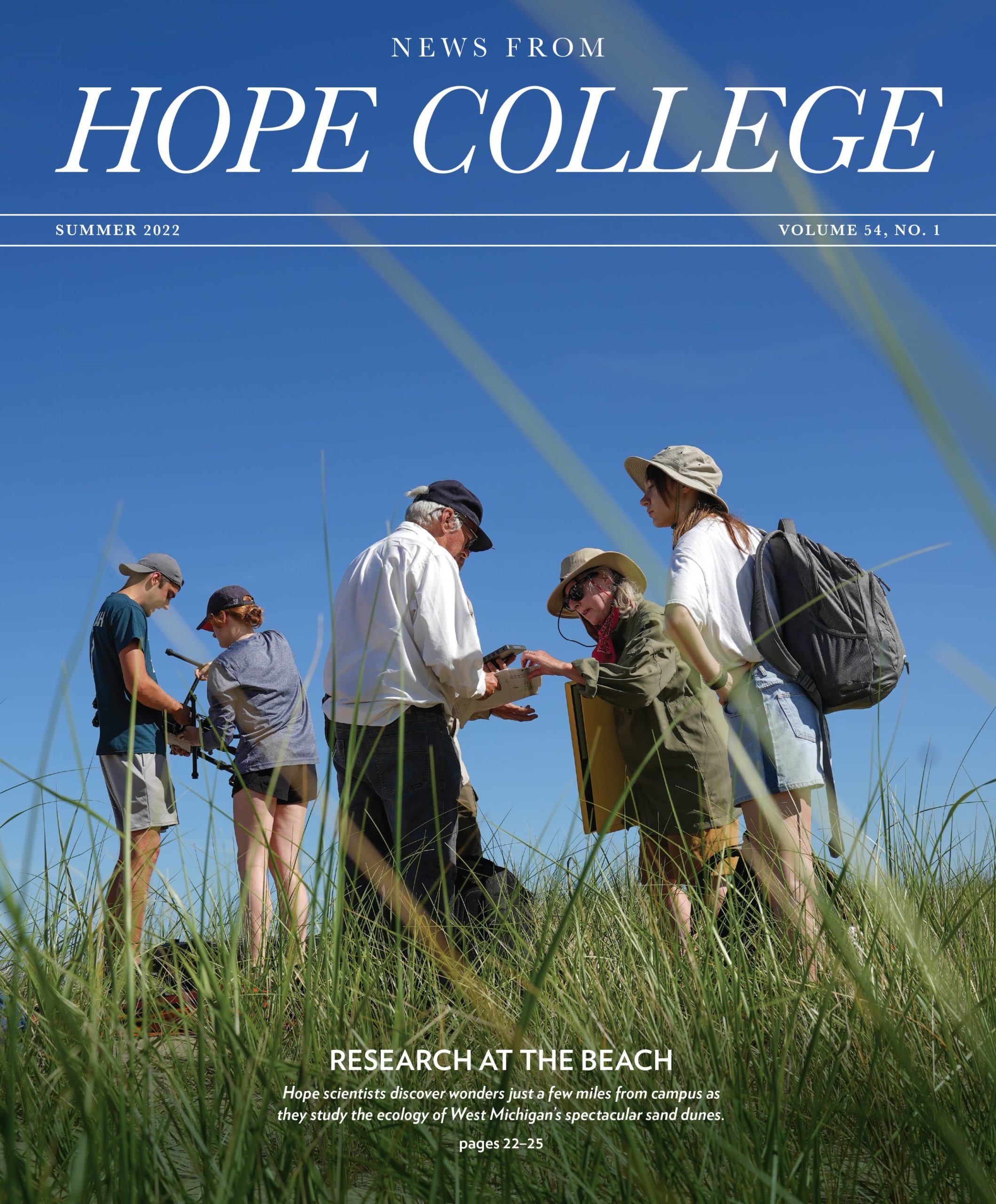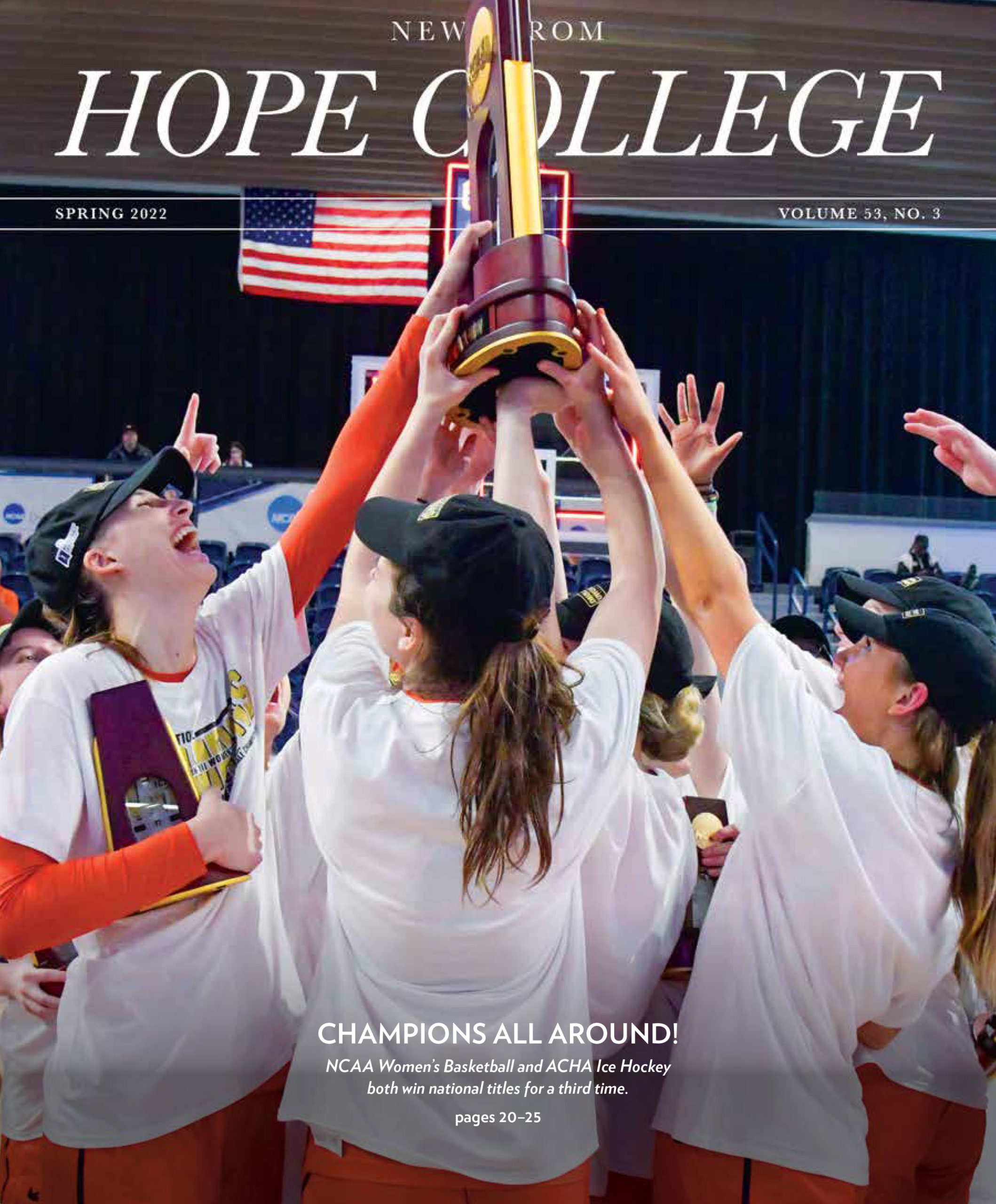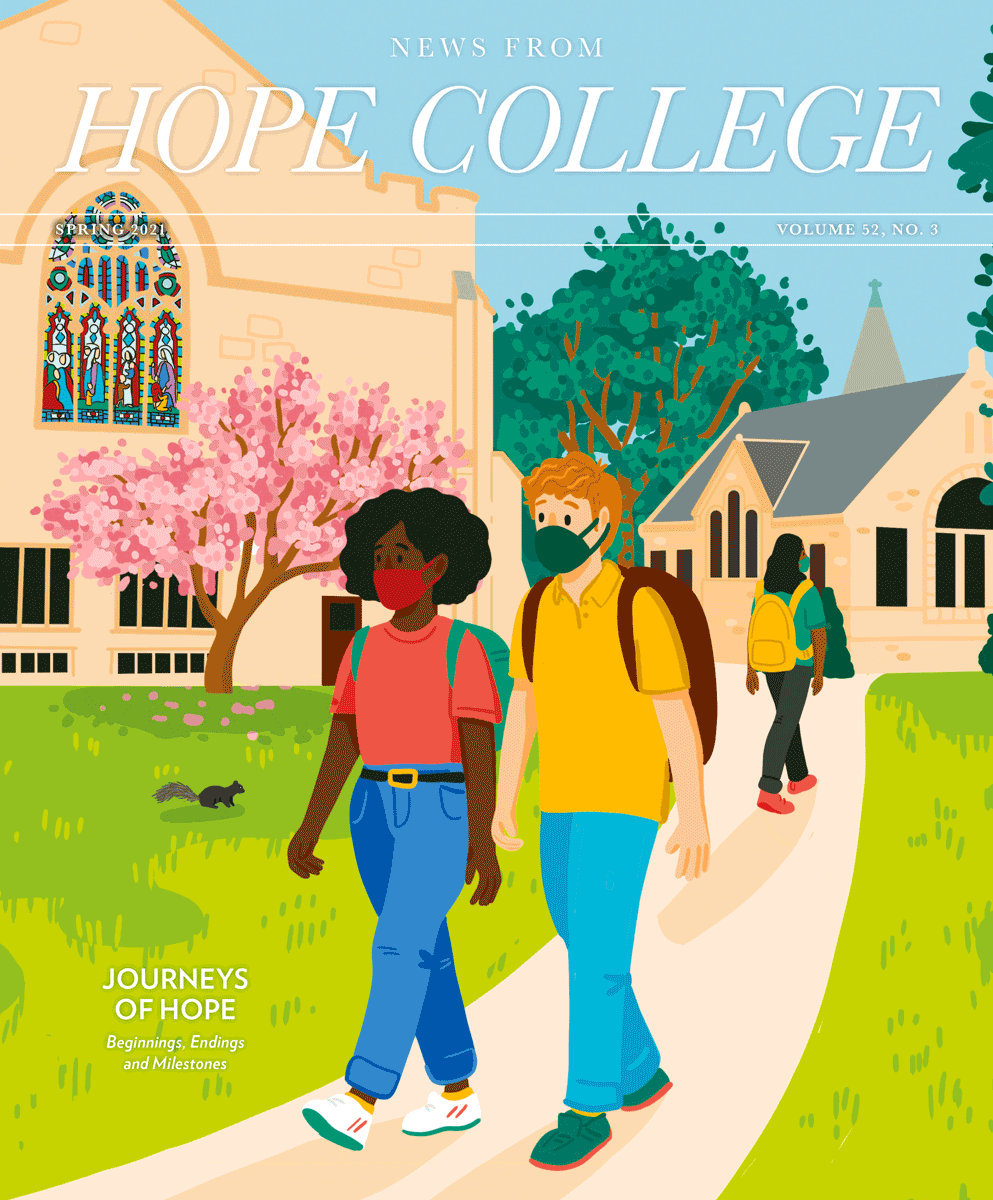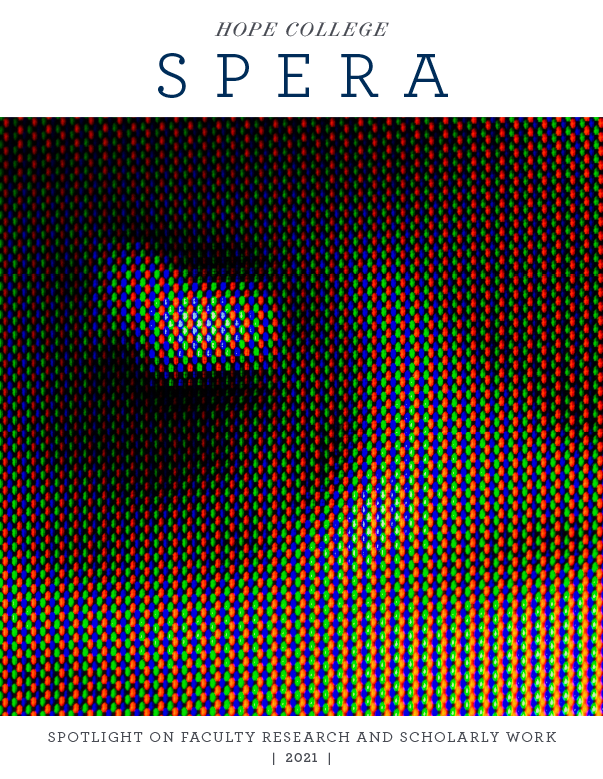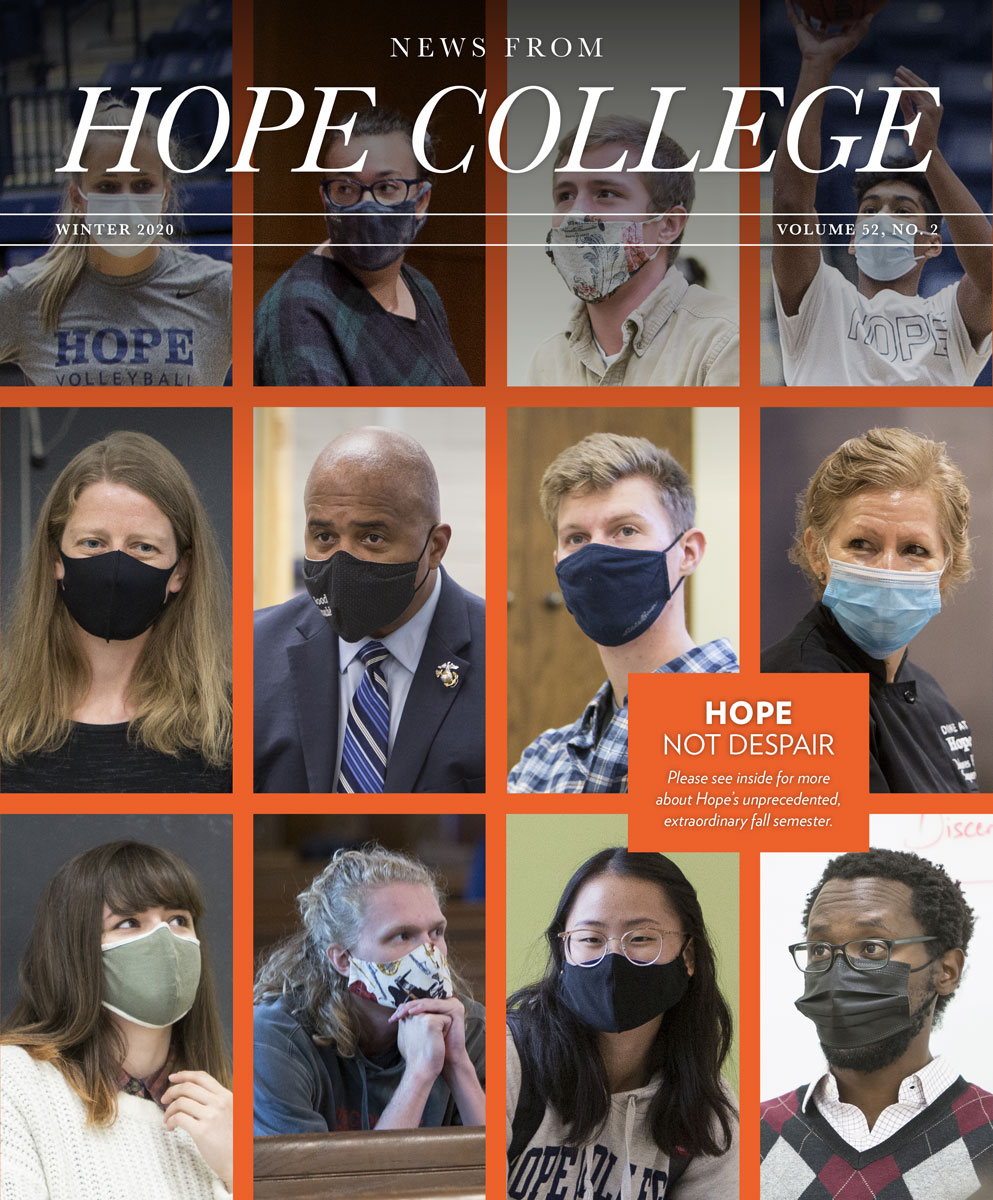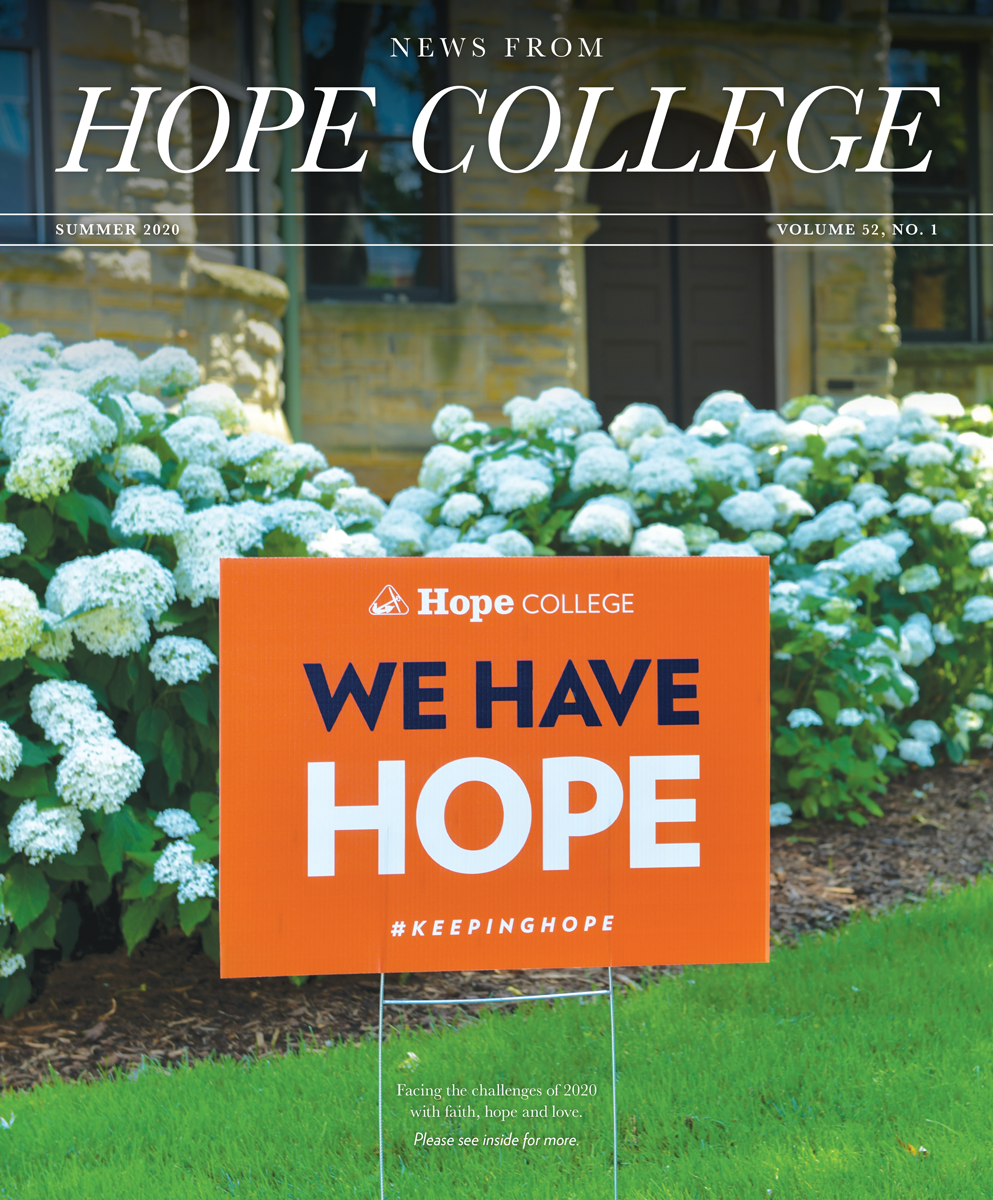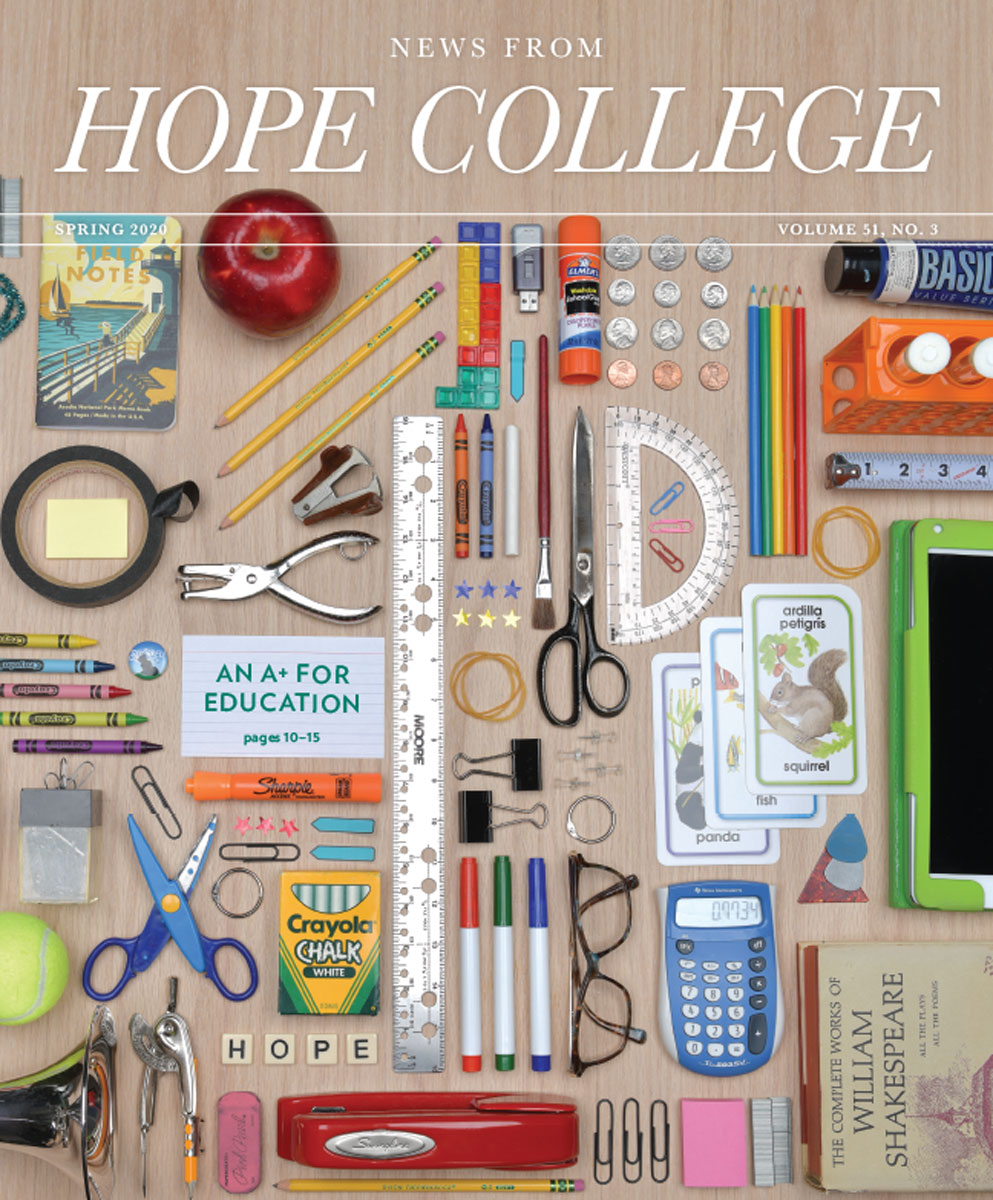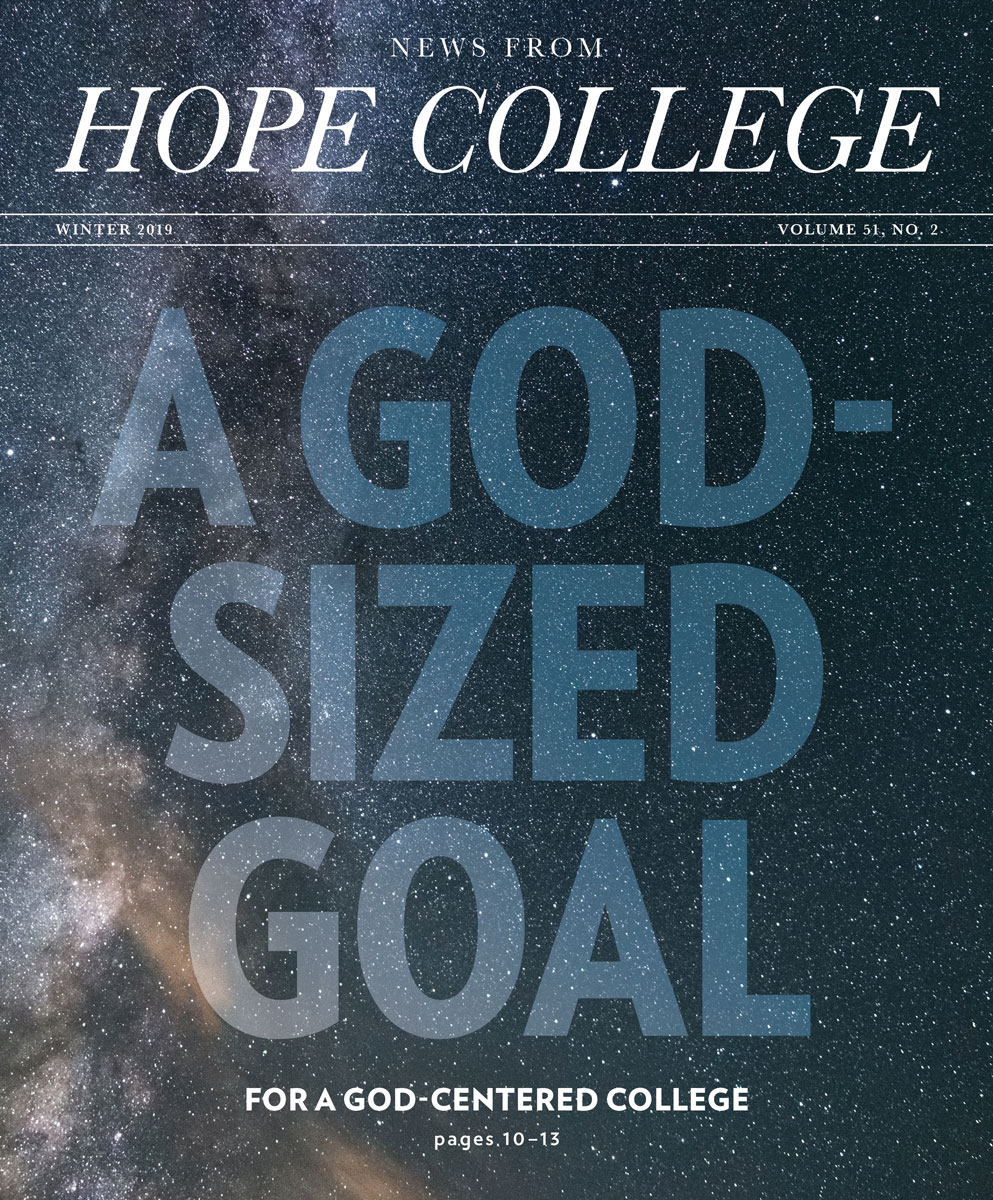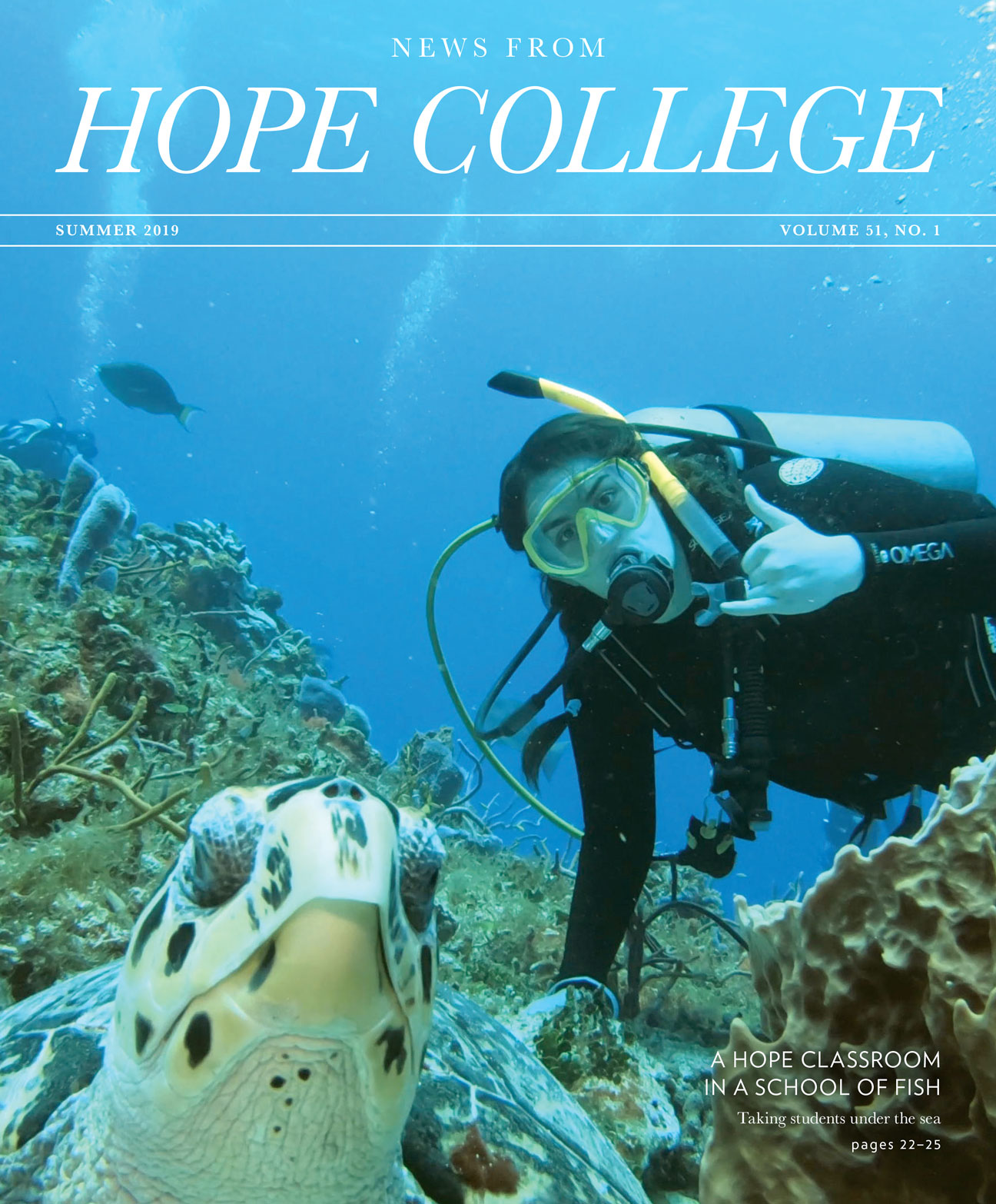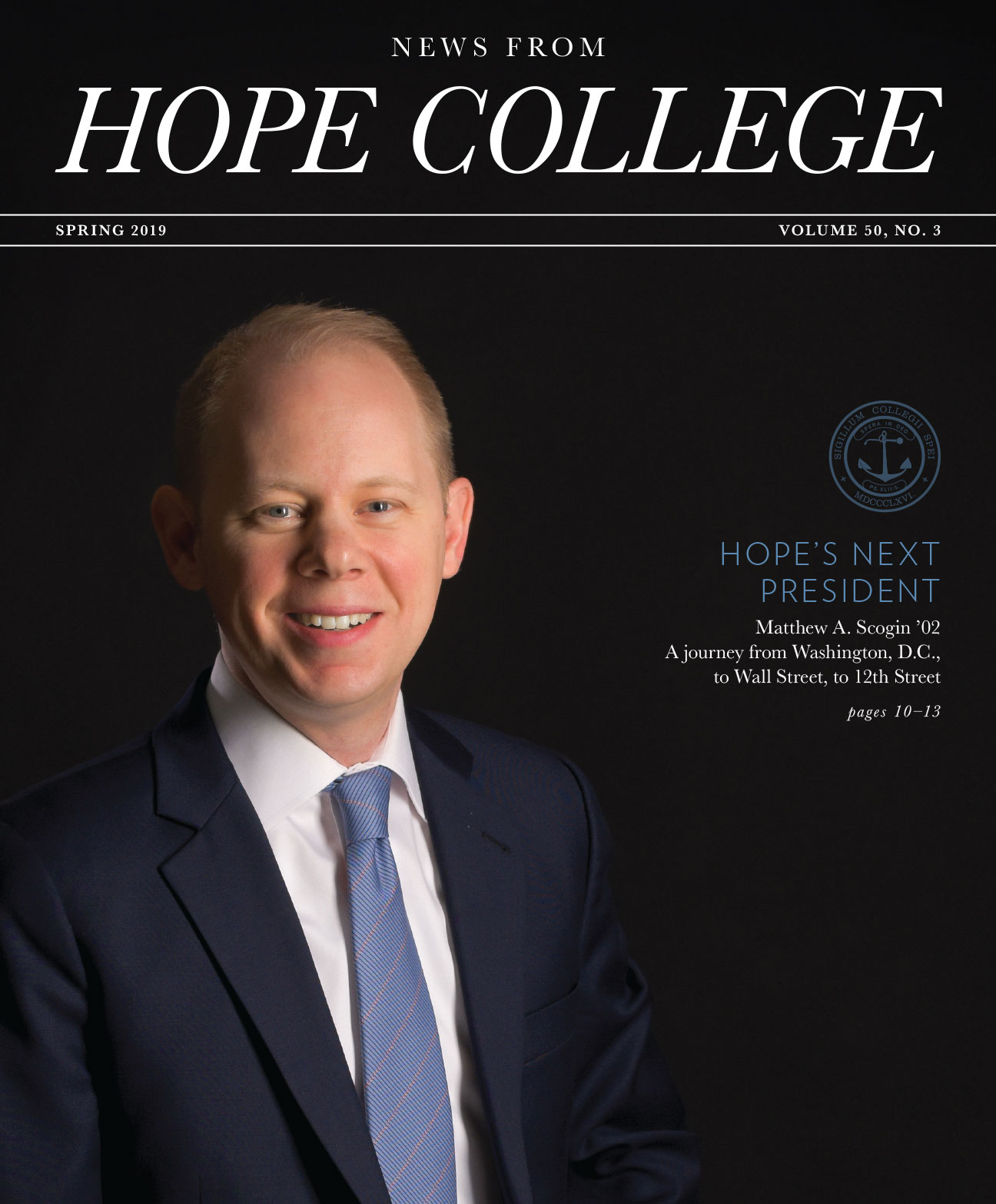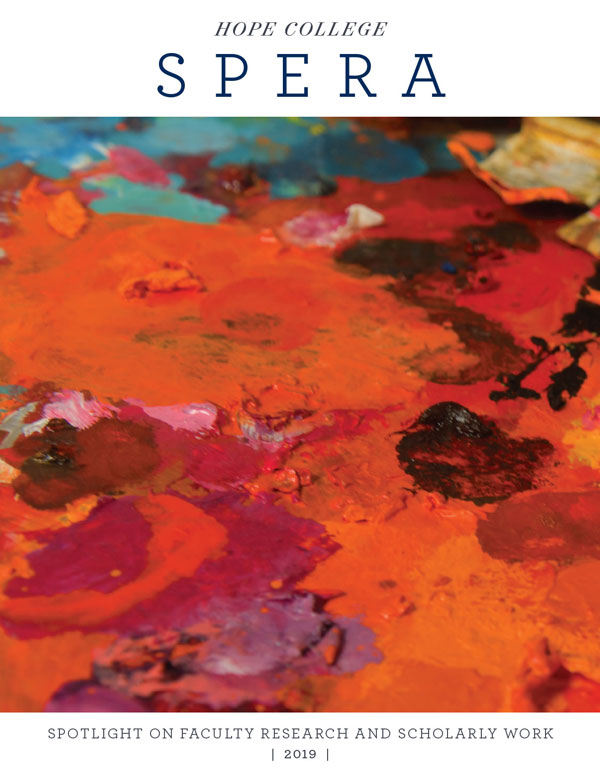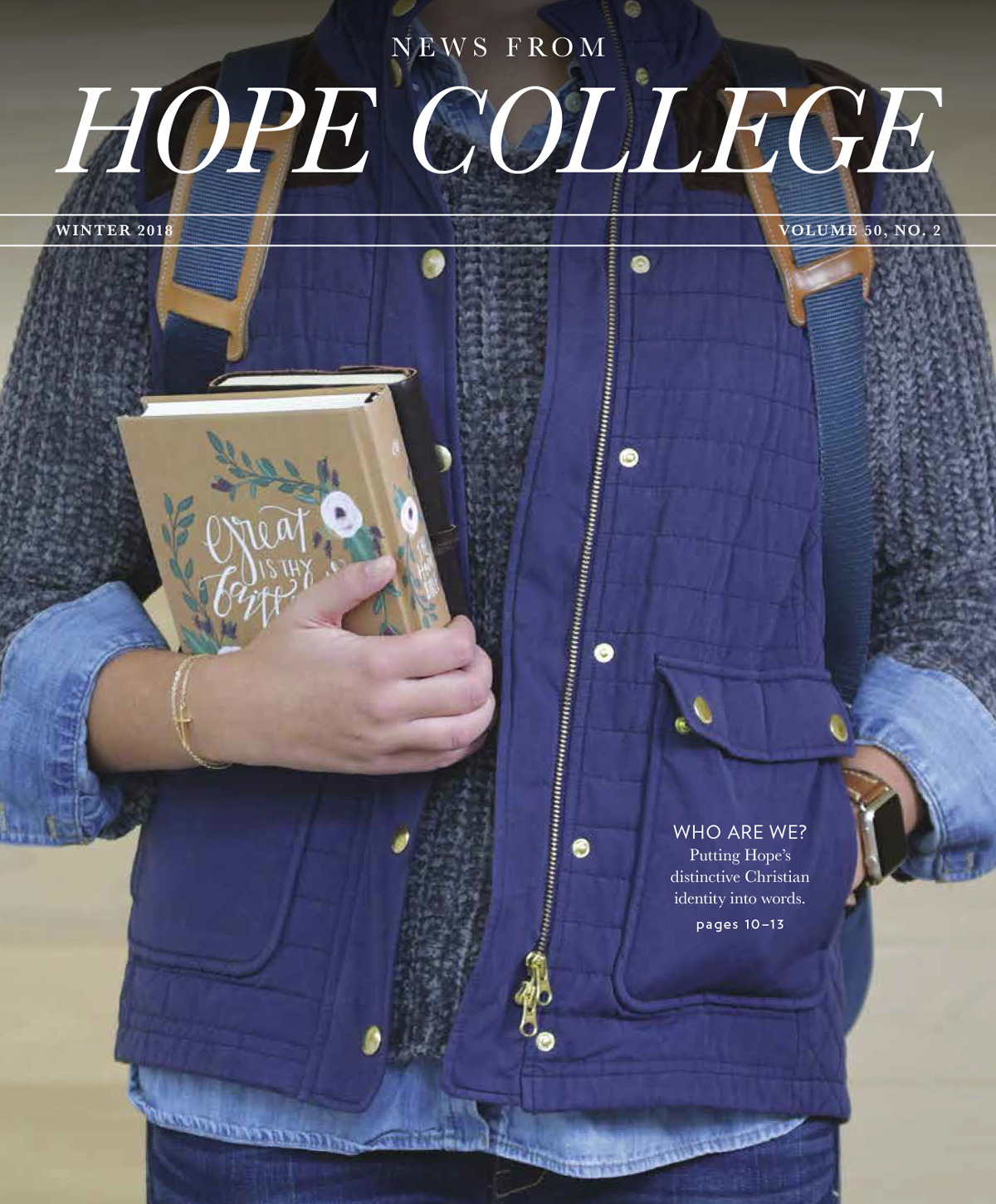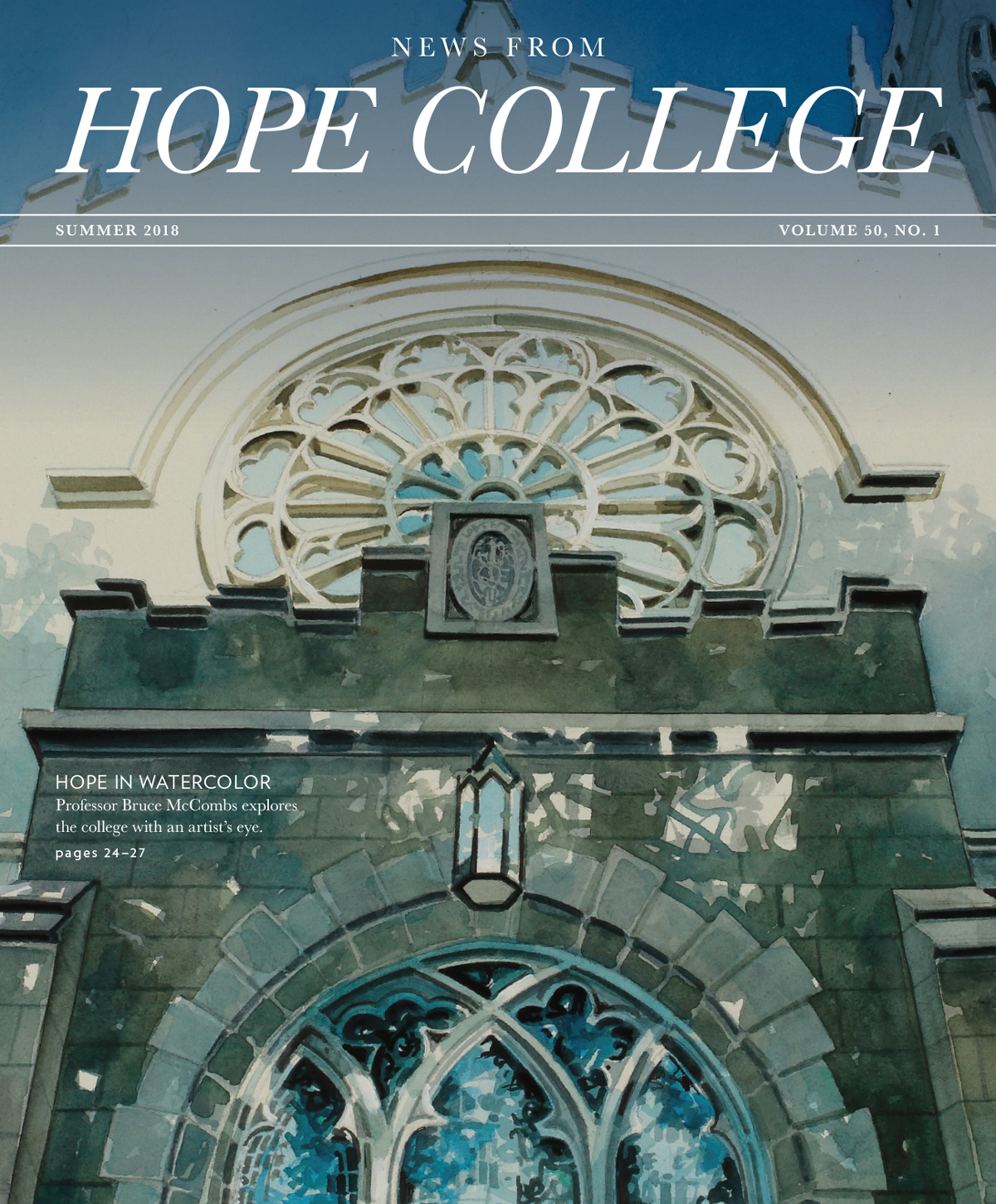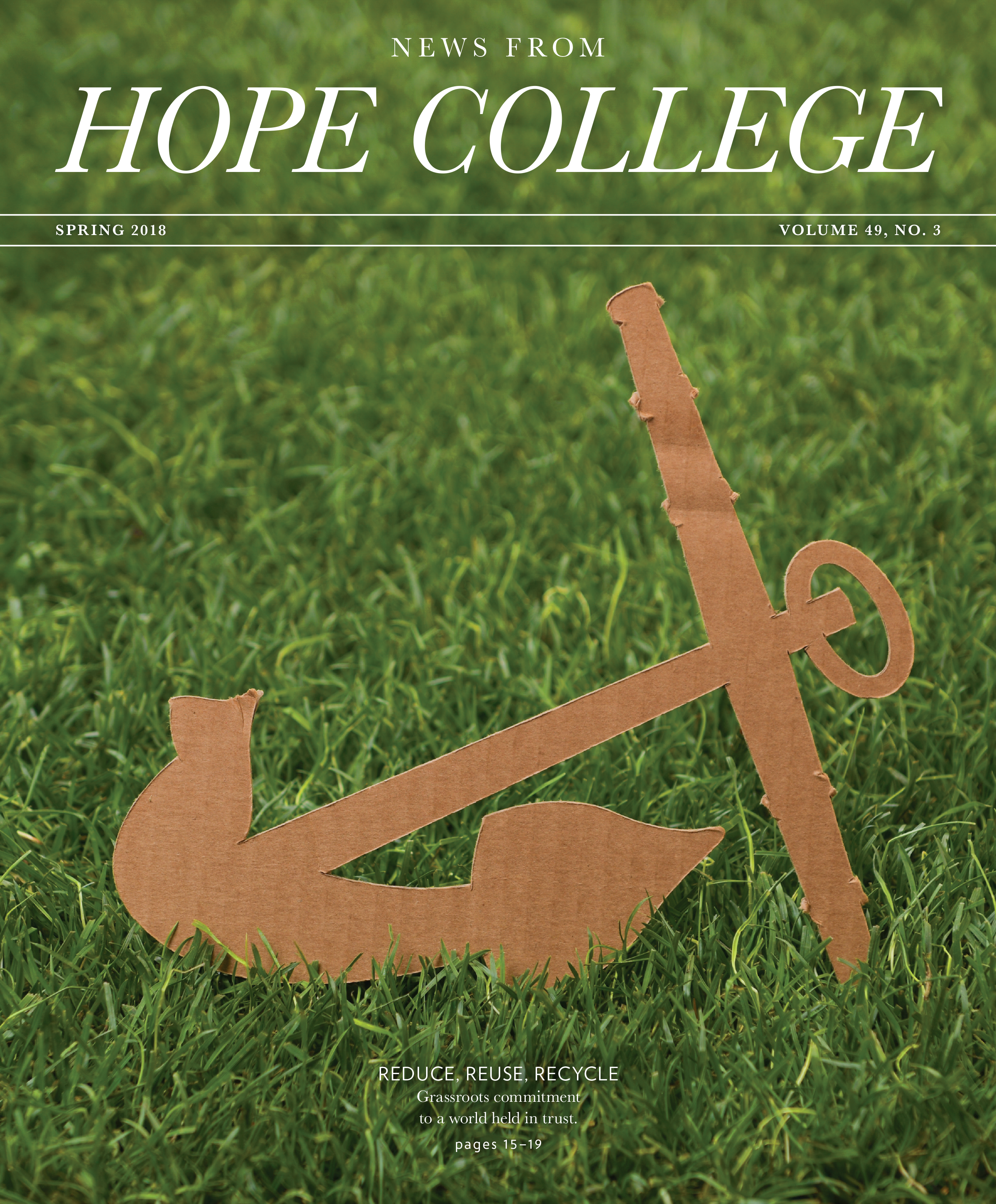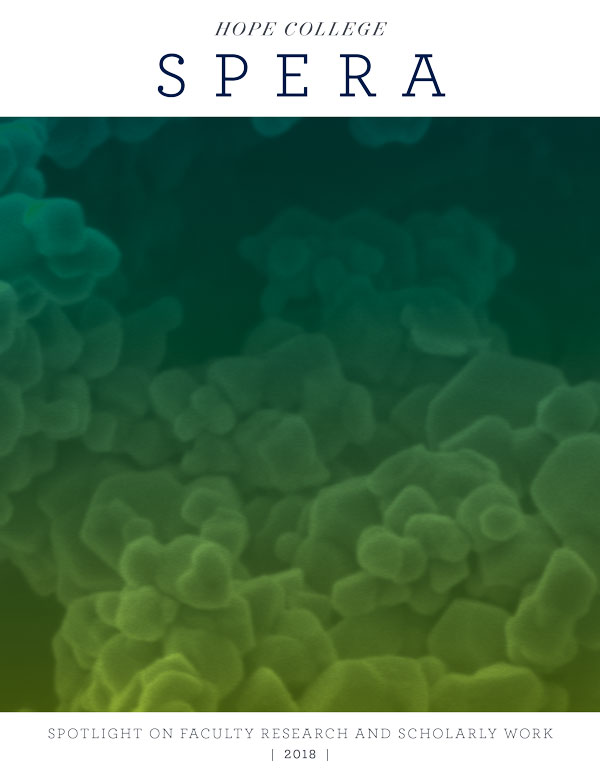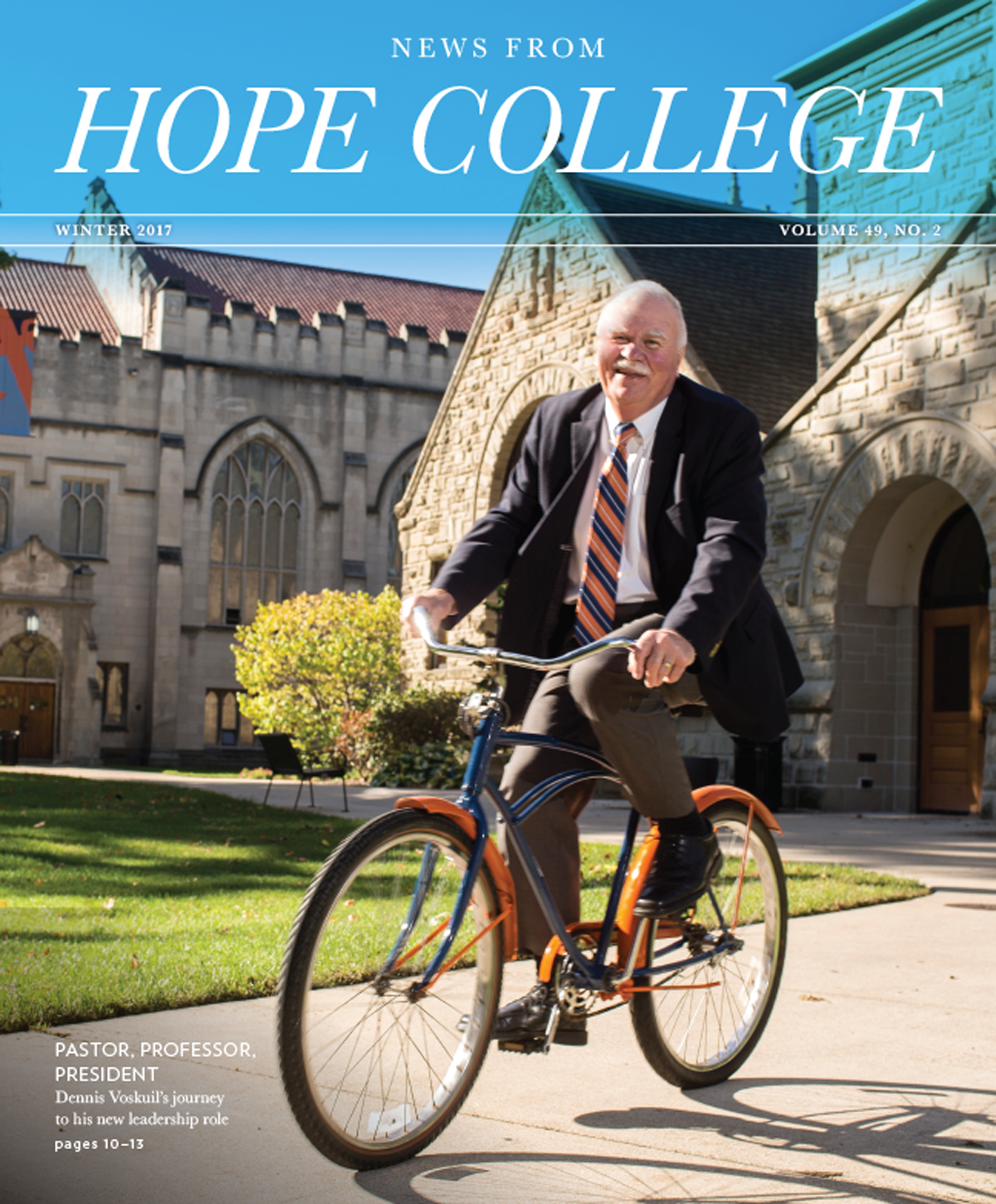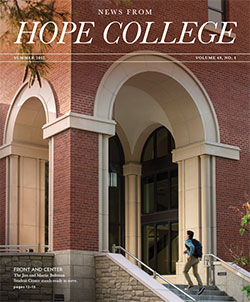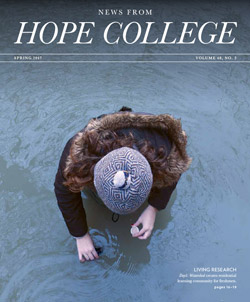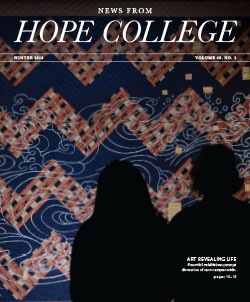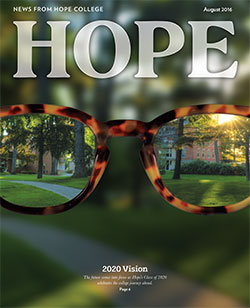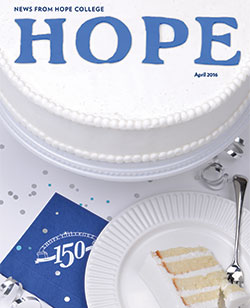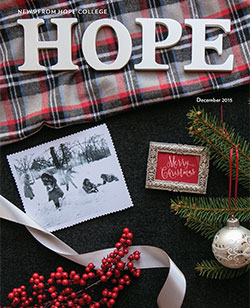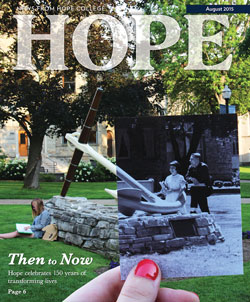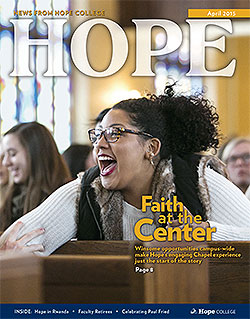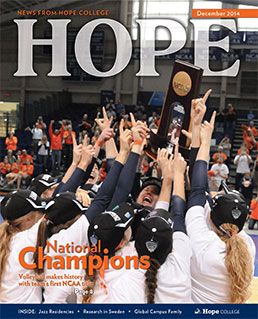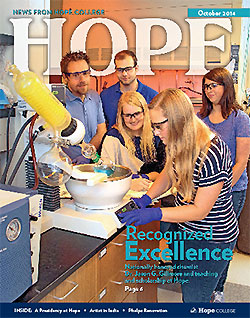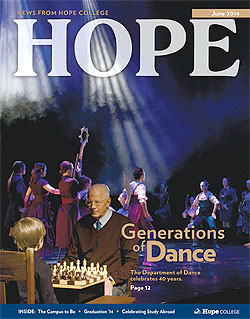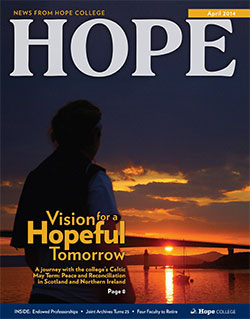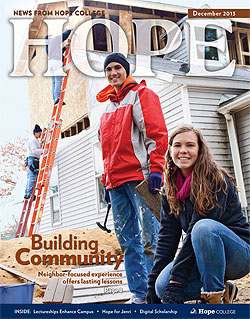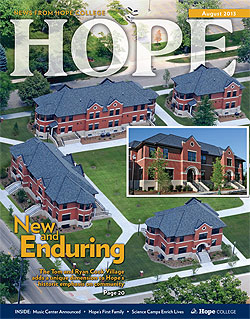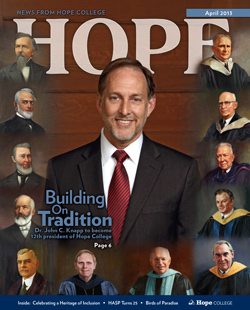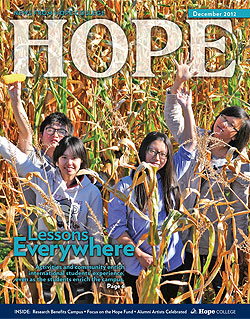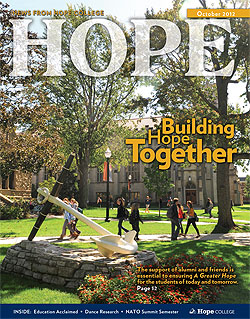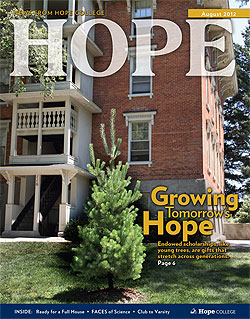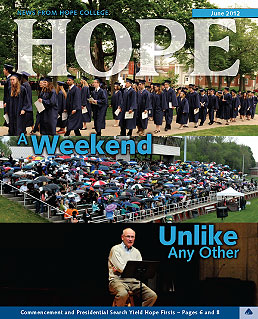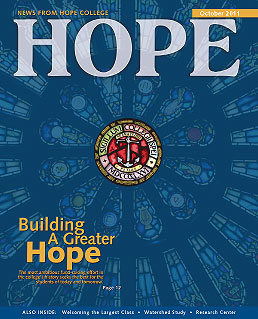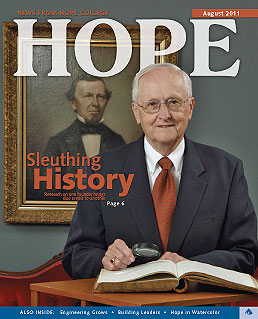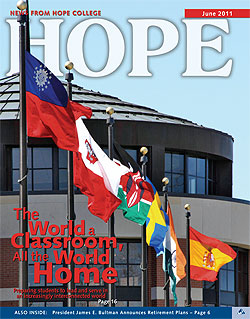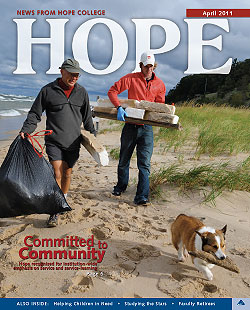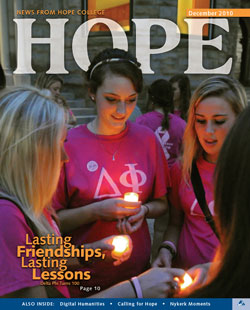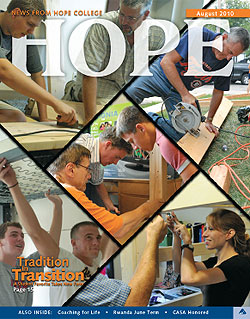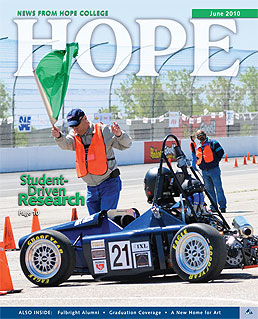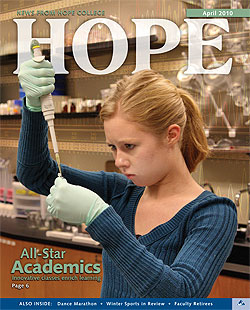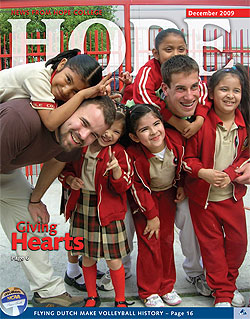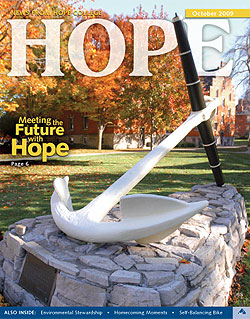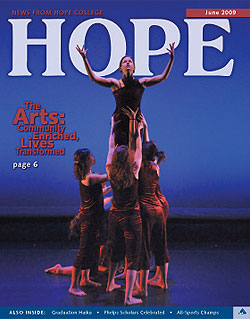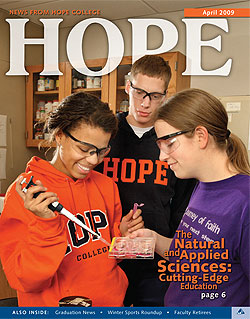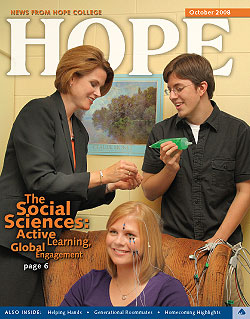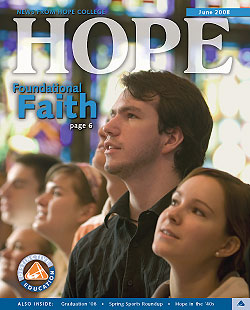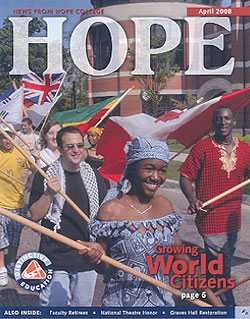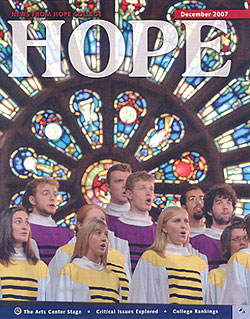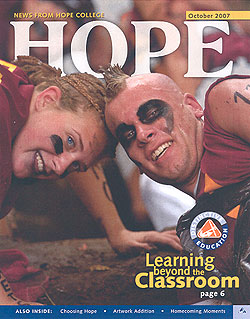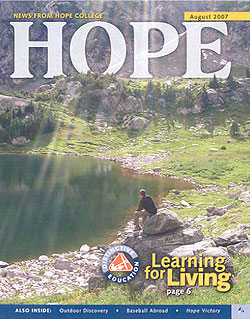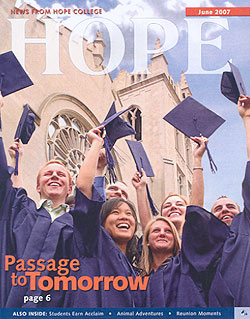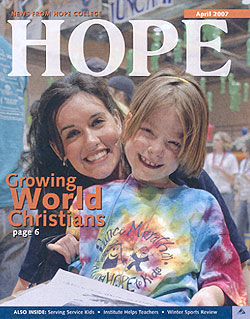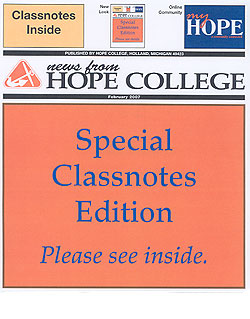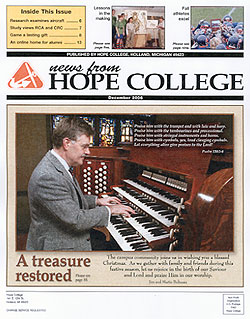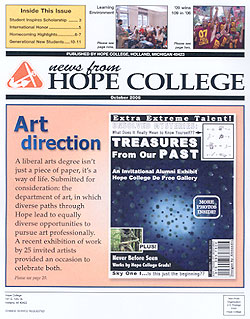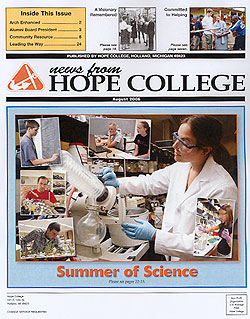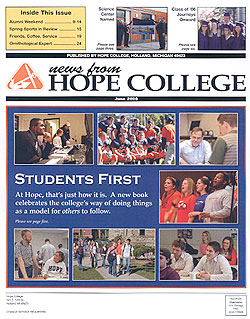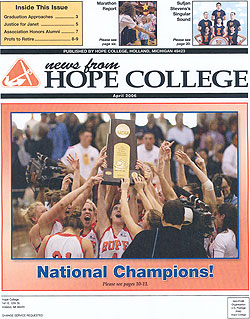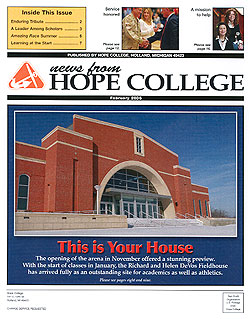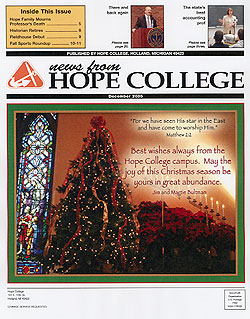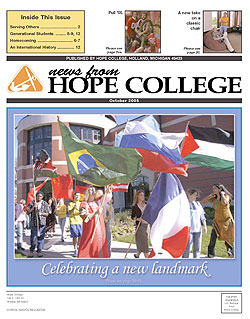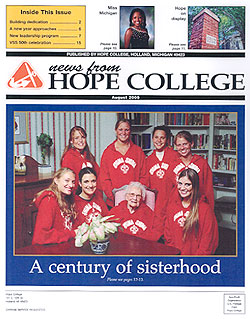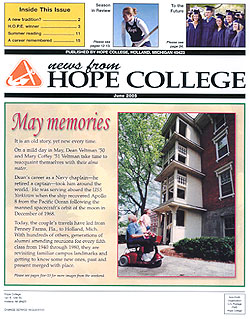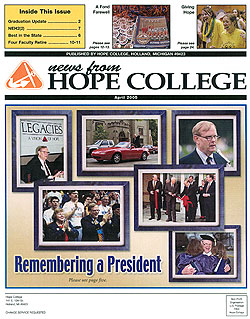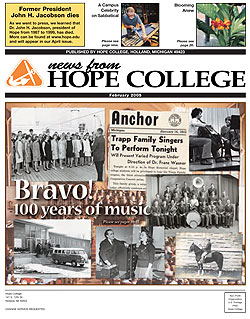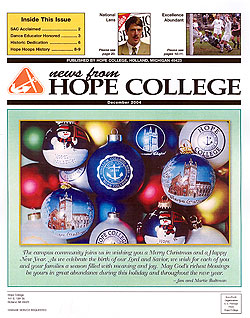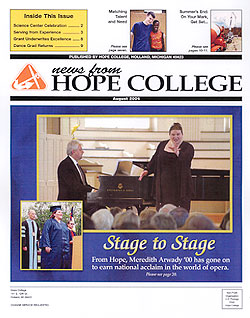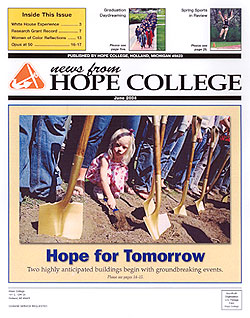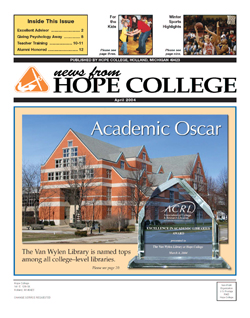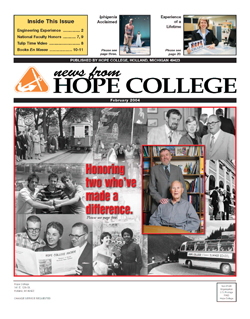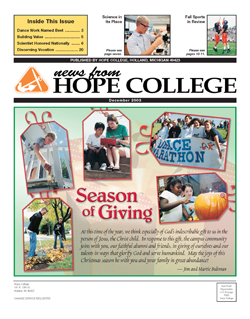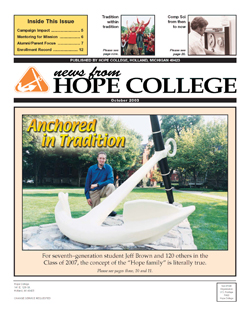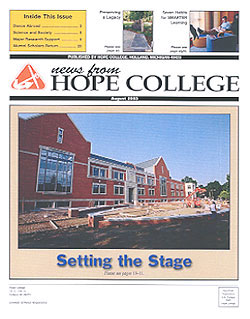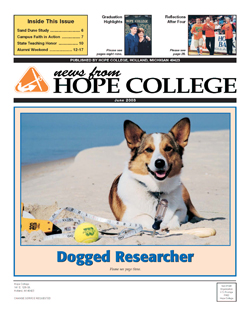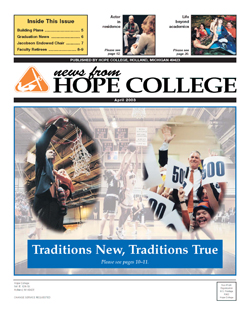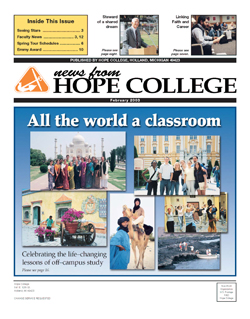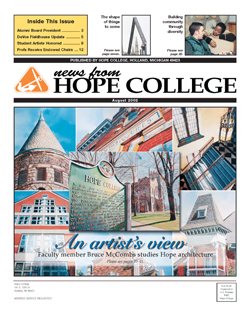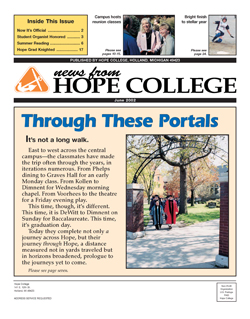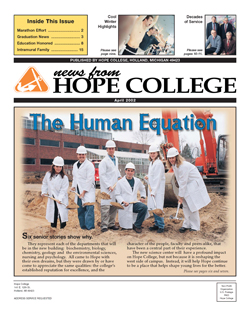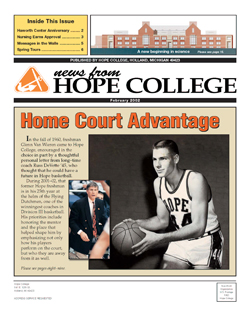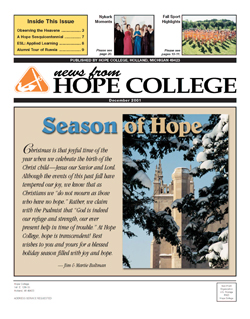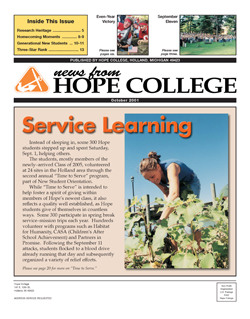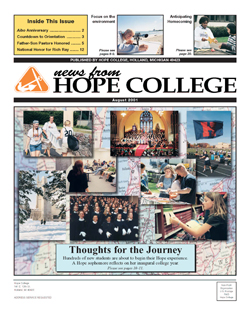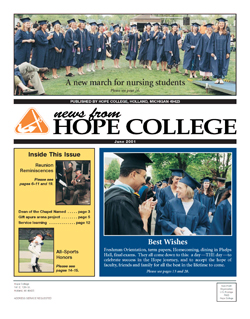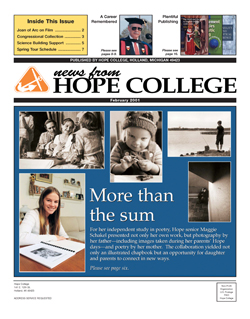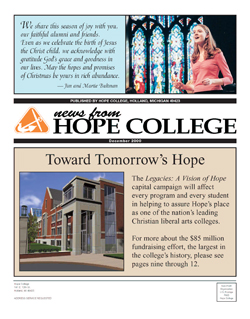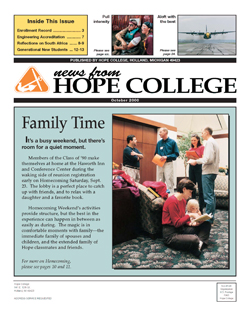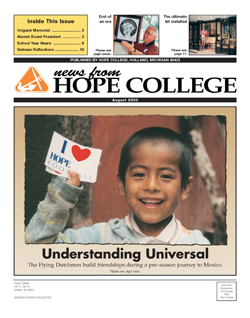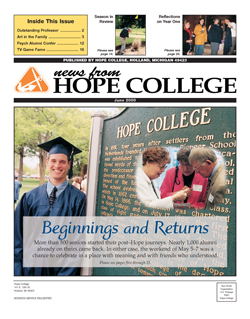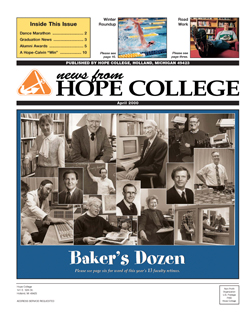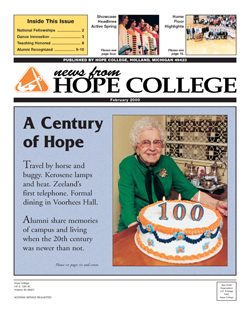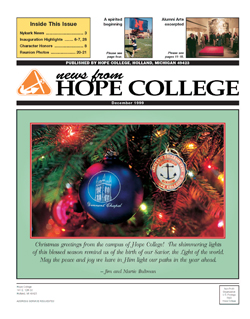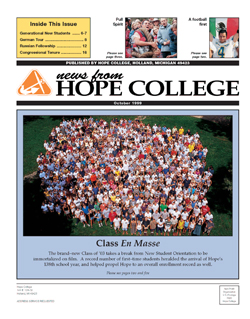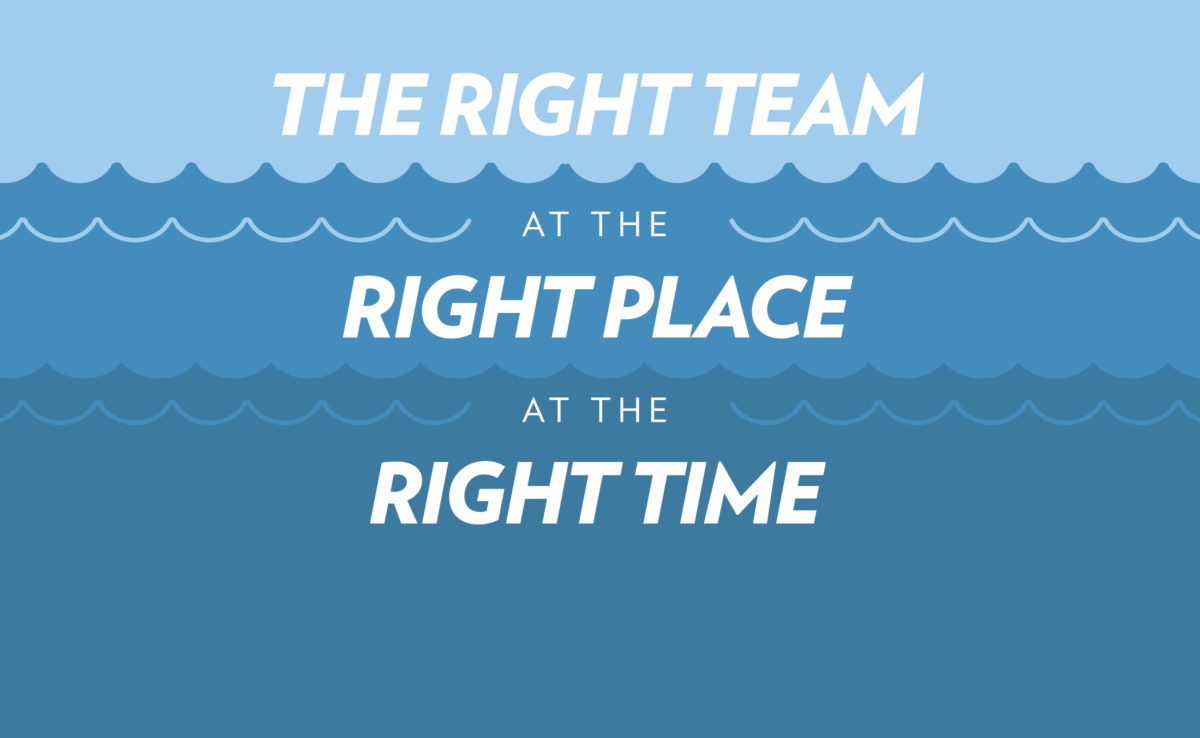The Right Team at the Right Place at the Right Time
The new Global Water Research Institute at Hope draws on a wellspring of expertise as it seeks to address deep need—from as close as home, to around the world.
One way to understand the motivation behind the new Global Water Research Institute launched at Hope College on United Nations World Water Day (March 22) is to consider this statistic from the U.N.: An estimated 2.2 billion people worldwide are living without access to safe water.
Faculty member Dr. Aaron Best, one of the two professors at the college who led development of the new program, considers another figure. He zeroes in on how children under five are affected.
“One child dies every 90 seconds,” said Best, who is the Harrison C. and Mary L. Visscher Professor of Genetics and department chair at Hope and co-leading the creation of the institute with colleague Dr. Brent Krueger. “That’s equivalent to two 747s full of children crashing every day.”
Water quality, Best noted, is also an issue close to home, ranging from the presence of E. coli and agricultural nutrients such as phosphorous in the Macatawa Watershed, to the contamination of drinking water in communities including Benton Harbor and Flint.
“So the problem is acute and needs to be addressed, and we believe that Hope can move into this area and have an impact,” he said.
The Global Water Research Institute (GWRI) is supporting research at Hope concerned with water locally, regionally and globally. “Our vision is to positively impact communities through improved understanding of water and equip them to make data-driven decisions about use of their water,” Best said.
The GWRI is building on experience honed at Hope across decades. Faculty from multiple departments — working collaboratively, as always, with Hope students — have been conducting research on water quality and related issues since the latter 1990s, not only locally (examples including the Macatawa Watershed, and microplastics in Lake Michigan), but abroad in nations including the Dominican Republic, Fiji and Kenya.
The institute is beginning with a share of a $2.5 million gift to Hope this past fall from Sawyer Products and the Sawyer Foundation. The funding is also supporting the college’s academic global health program that began in August.
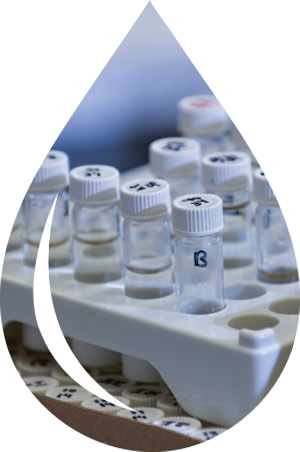
“We’re grateful for Sawyer’s continued partnership,” Best said. “They’re enhancing our ability not only to provide meaningful learning opportunities for our students, including hands-on through research, but to make a lasting difference to the quality of life for people from as nearby as our hometown of Holland to the other side of the world.”
The award also supports the Hope Forward initiative announced in July, through which the college is seeking to fully fund tuition for every student while continuing to offer outstanding programming. The gift is enabling the college to enhance its academic program without drawing on existing resources to do so.
Based on the sort of water research currently pursued at Hope, the GWRI is starting with three areas of emphasis: access to safe water; environmental health and sustainability (which overlap with water quality); and expanding on the wastewater testing that Hope has been conducting since August 2020 to detect the presence of COVID-19 on campus and in other communities.
“You can also monitor other organisms — so, influenza or Epstein-Barr or HIV; any number of types of viruses that could impact public health,” Best said.
According to Best and Krueger, bringing the research together under the umbrella of the institute serves multiple goals, not the least of which is providing a structured way for those involved in the work to connect and brainstorm.
“The GWRI will be a home for faculty with similar research interests so that we can get together, talk about those interests, and look for areas where we might collaborate that we maybe wouldn’t have noticed before that will make each of our projects stronger,” said Krueger, a professor of chemistry and Schaap Research Fellow.
Best and Krueger see the GWRI complementing the global health program, which involves 12 departments across campus. Featuring an academic major and minor, the global health program emphasizes applied learning and impact through classroom instruction and collaborative faculty-student research and connections to be established beyond campus to benefit local and global community health. Water quality is among the relevant areas of study, and students in the global health program will be among those working with GWRI faculty researchers.
At the same time, the GWRI isn’t an academic program. The research itself will be the primary purpose of the institute, which will be operating independent of any specific department. The focus places the GWRI among a handful of such initiatives at Hope, including the Frost Center for Data and Research, which is a social science research center established in 1990, the Joint Archives of Holland (1988) and the A.C. Van Raalte Institute (1993).
Research has a long and storied history at Hope. More than 100 years ago, biologist Dr. Samuel O. Mast designed research laboratory space for the college’s Van Raalte Hall, which opened in 1903. The late Dr. Gerrit Van Zyl, who taught chemistry at the college from 1923 to 1964, is widely recognized for developing research-based learning at Hope in its modern sense, beginning with a project with a Hope student in 1947. Through the years, the college has been recognized multiple times nationally for its effectiveness in using collaborative research as a teaching tool, and Hope faculty campus-wide also receive millions of dollars in research funding annually from external agencies.
It’s Hope’s success in consistently demonstrating that faculty at an undergraduate college can conduct research at a high level that convinced Kurt Avery ’74, founder and president of Sawyer Products, to support the expansion of research focused on water and related issues. Avery makes that point because he’s an alumnus and recognizes that it could be assumed that his personal connection guided the decision. Sawyer manufactures water filtration systems and other outdoor products, and he notes that the company will be among those relying on and benefiting from the work being conducted.
“I didn’t do this because I’m an alum,” he said. “I’ve turned down research programs at universities because they weren’t up to speed.”
“Hope runs an outstanding science department with people who are top of the line in the country — where else would I want to go?”

Best and Krueger emphasize that the multi- and inter-disciplinary GWRI is designed to engage faculty from beyond the natural and applied sciences as well. Academic departments represented by faculty members of the institute include biology, chemistry, geological and environmental science, mathematics, political science and religion.
“It’s important to us that this be campus-wide,” Krueger said. “So, for instance, Virginia Beard of the political science faculty worked with us recently on an international project, and when we think of water as a global issue, past, present and future, there’s an opportunity for other faculty in the social sciences and humanities — economics, political science, history…”
The problem is acute and needs to be addressed, and we believe that Hope can move into this area and have an impact.
Beard collaborated with Best and Krueger on a project focused at the household level in a community in Kenya. Her research background includes training and work in policy and program evaluation; the creation, use and analysis of surveys and survey data; and work in East Africa — in Kenya specifically. “I helped evaluate the data collection tool/surveys, examining research question wording, question order, human subjects protocols in survey research and other such aspects of survey research,” she said. “I also helped the team think about cultural aspects of the work given my 22-plus years of experience working in Kenya and with Kenyan partners.”
“The GWRI is exactly the sort of institute that academia needs in order to make real-world impact,” she said. “I have always felt invigorated by research that does not just bring together strong data and bring enlightenment to situations, but also can be used to impact policy and work that affect people’s lives. The GWRI will bring together scholars from multiple disciplines in just the way that was always meant to happen.”
Hope, she noted, is also the right place for a center like the GWRI.
“As a liberal arts institution centered on the Christian faith with a goal of educating students for lives in a global community, Hope is the ideal place for the GWRI,” she said. “Water — access to enough and clean water — is central to the ability for people to thrive… to live the full lives that God creates each person to live. Hope can support the dignity of people around the world by bringing together colleagues from across its divisions and disciplines engaging solutions to global water issues with deeply formed training and experiences in their fields and strong foundations in Christian worldviews. The institute will allow faculty and students to work together, learning about and creating solutions to water access.”
Those qualities at Hope are also important to Sawyer, which makes a point of donating its filters, in the tens of thousands, to communities in need.
“We still have a lot of things to prove with the biology of water, but there’s also so much beyond the biology of the water that needs to be tackled,” Avery said.
“You have to look at the totality,” he said. “What changes, for example, when the young women of a community no longer have to spend hours each day walking for miles because that’s where the safe water is? You literally change cultures and communities when you change water, and we haven’t explored all of those impacts yet.”
Building on Experience
With several members of the Hope faculty already engaged in research related to water and water quality, the new Global Water Research Institute is building on a solid foundation:
- Dr. Aaron Best, the Harrison C. and Mary L. Visscher Professor of Genetics and department chair, co-director
- Dr. Brent Krueger, professor of chemistry and Schaap Research Fellow, co-director
- Dr. Virginia Beard, associate professor of political science
- Dr. Brian Bodenbender, professor of geology and environmental science and department chair
- Dr. Stephen Bouma-Prediger ’79, the Leonard and Marjorie Maas Professor of Reformed Theology
- Dr. Kenneth Brown, professor of chemistry and Schaap Research Fellow
- Professor Suzanne J. DeVries-Zimmerman ’82, assistant professor of geological and environmental science instruction
- Dr. Michael Philben, assistant professor of chemistry and geological and environmental science
- Dr. Michael Pikaart, associate professor of chemistry
- Dr. Brian Yurk ’03, associate professor of mathematics
